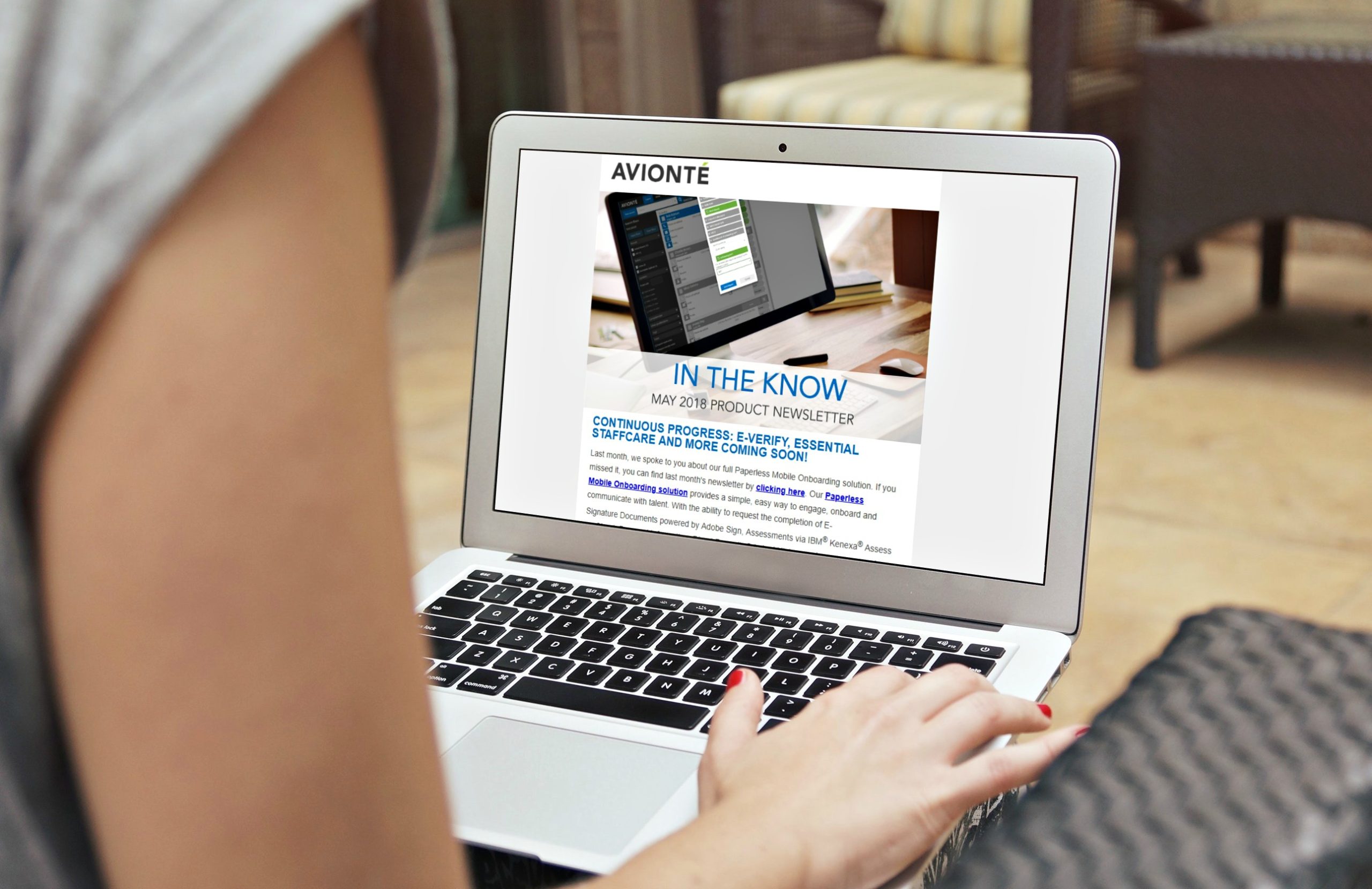
Avionté “In the Know”: Product Updates, May
Last month, we spoke to you about our full Paperless Mobile Onboarding solution. If you missed it, you can find last month’s product updates by
As an end-to-end software solution for staffing and recruiting firms, Avionté aims to be a resource for your needs from front- to back-office processes. As year end reporting season approaches, here are some 2020 tax form updates to two major forms of which firms across the US and Canada should be aware.
In 2020, employers had a new option for providing health care to their employees: Individual Coverage Health Reimbursement Arrangements (ICHRAs). If you provided an ICHRA to employees, take note of these new instructions for the 1095-C.
2020 Instructions for Form 1095-C
Under the ACA, large employers are required to offer ACA-compliant coverage to their full-time employees or pay an employer shared responsibility payment penalty to the IRS. This requirement is commonly known as the employer mandate. Large employers are those with an average of at least 50 full-time employees (including full-time equivalent employees) in the prior calendar year. The employer’s health coverage is ACA-compliant if it meets minimum essential coverage, minimum value and affordability requirements.
The federal agencies have determined that ICHRAs meet the minimum essential coverage requirement and will meet the minimum value requirement if the ICHRA is affordable. In general, affordability is based on (1) an employee’s compensation, (2) the amount the employer contributes to the ICHRA, and (3) the premium for the lowest-cost silver health plan available to the employee on the Exchange taking into account the employee’s age and location (residence or primary worksite). The federal government has developed a tool employers can use to determine the lowest-cost silver plans in states using the federal Exchange. Consequently, a large employer may be able to meet the employer mandate by offering its employees an ICHRA rather than a traditional group health insurance plan.
Age: If the employee was offered an individual coverage HRA, enter the employee’s age on January 1, 2020. Note that for non-calendar year plans or for employees who become eligible during the plan year, this age may not be the Applicable age used to determine Employee Required Contribution.
Line 14: Codes 1L through 1S are available to indicate the affordability of ICHRAs offered by employers. They should be used under the following circumstances:
Line 17: If the ALE Member used code 1L, 1M, 1N, 1O, 1P, or 1Q because it offered the employee an individual coverage HRA, enter the appropriate ZIP code used for identifying the lowest cost silver plan used to calculate the Employee Required Contribution in line 15. This will be the ZIP code of the employee’s residence (code 1L, 1M, or 1N) or the ZIP code of the employee’s primary site of employment if the ALE Member uses the work location safe harbor (code 1O, 1P, or 1Q)
For the 2020 tax year, the Canada Revenue Agency (CRA) will be introducing additional reporting for the T4 slip, Statement of Remuneration Paid. Additional reporting requirements will apply to all employers, and will help the CRA validate payments under the Canada Emergency Wage Subsidy (CEWS), the Canada Emergency Response Benefit (CERB), and the Canada Emergency Student Benefit (CESB).
For the tax year 2020, in addition to reporting employment income in Box 14 or Code 71, you will use new “other information” codes when reporting employment income and retroactive payments in the following periods:
Eligibility criteria for the CERB, CEWS, and CESB is based on employment income for a defined period. The new requirement means employers should report income and any retroactive payments made during these periods.
Refer to the Avionté Knowledge Base for our library of resources of updated information regarding COVID-19 & Year-End reporting. Also, each Monday the Compliance – Tip of the Week is sent to clients whom have signed up for the newsletter. Sign-up here for weekly Compliance updates – Tip of the Week Newsletter
For more information, and before acting on any information contained within this article, Avionté recommends consulting with your legal counsel. This information should not be construed as, and does not constitute, legal advice.